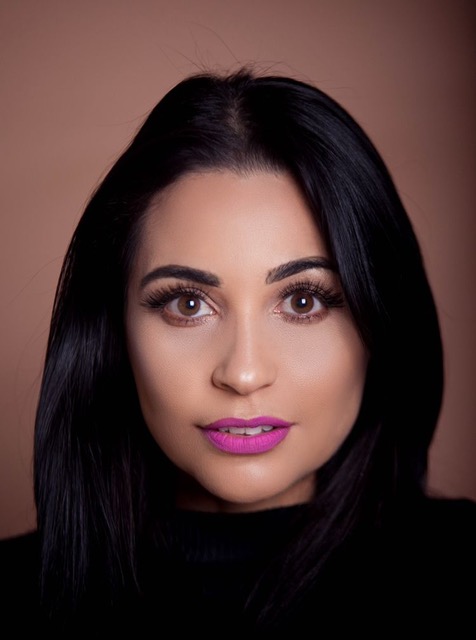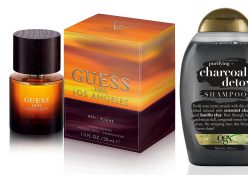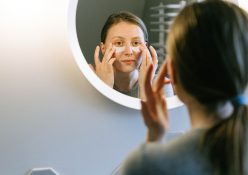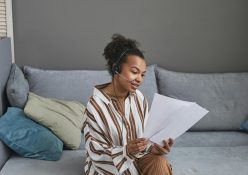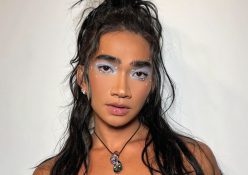We sat down with professional make-up artist and owner of Onqmakeup, Qaanita Abrahams.
From watching her mom paint her face in the morning to testing different make-up trends and styles on friends and family, Qaanita’s talent and keen passion for make-up has paved for her a perfectly contoured path as a professional make-up artist and beauty brand owner.
Is there a make-up hack or tip that you absolutely love? And is there any that you dislike?
Coconut oil is my go-to for skincare. Use it to remove make-up – especially the eye area. Because it’s a natural product, it won’t harm your skin, and then after wash your face with standard skincare products. My ultimate tip for flawless-looking make-up is to always start with the eyes first. Followed by the rest of your routine, that way you’re not touching your face unnecessarily which leads to a more flawless application. But a big no-no, for me personally as an artist, is blue eyeshadow in all forms of life.
What are the essential make-up items you think every person should have?
My must-have essential items are Onqmakeup Brushes – foundation brush, mascara, bronzer, a foundation that perfectly matches your skin tone, sunscreen and definitely Vaseline. It’s also important that your foundations, powders and concealers be of good quality – they just last longer. Those are products I would suggest spending a little extra money on. And always be on the lookout for expiry dates.

Scenario: You have to go to a meeting, but can only use one make-up product, what item are you grabbing?
My weapon of choice would definitely be a bold or a classic red lip – quick and easy simple statement lippie. If you’re not that daring, I would just a flick of mascara. It will open up your eyes and you’ll see the difference almost instantaneously.
ONQ Makeup is known to host personal make-up workshops. What drove you to start it and how has this impacted you as an artist?
I wanted to teach everyday women how to use their make-up correctly. Lots of women buy make-up but don’t necessarily know how to use it. So the workshops are simply a way to teach basic techniques of make-up to everyday women. It’s not to train you to be a professional make-up artist but rather to share the knowledge and passion I have for make-up, and impart a few tips and tricks that I’ve learnt along the way. I get to show women how to actually use what they have by enhancing their uniqueness and in doing so make them feel more confident and powerful in their everyday lives.
Qaanita, you have worked with many influential people and fashion houses over the years. What would you say has been the highlight of your career?
The highlight of my career was working with Miss South Africa2018 Tamryn Green, as well as meeting Basetsana Khumalo at an elite wedding event of one of the ANC officials – I had the pleasure of doing the bridal make-up for that specific day.

As a make-up artist, working with many different people, what is your secret to finding the right ‘look’ for each individual person?
There is really no secret. It all comes down to experience and working on different people (or skin types) from literally all walks of life really. It’s also extremely important to know what your client wants, by asking the right questions, like what do they envision for their make-up, what’s their personalities, what they like and dislike, and what they are wearing. By asking these little questions, well by listening and applying your knowledge, you can create a look that both you and your client would be proud of.
Do you have any words of wisdom for those trying to start their own make-up journey?
The best tip I can share (and it’s probably the most predictable) is to practice. A lot of the girls that are self-taught most often practice on themselves and in that way it becomes easier to do your own make-up which makes it easier to also understand your skin as well for what works and what doesn’t. However, you want to become a professional make-up artist, you would need to work on all sorts of skin types (from dry to oily, aged, mature, younger, male, and females), not just your own.
Words: Thuveshnie Govender | Images: Courtesy Images



